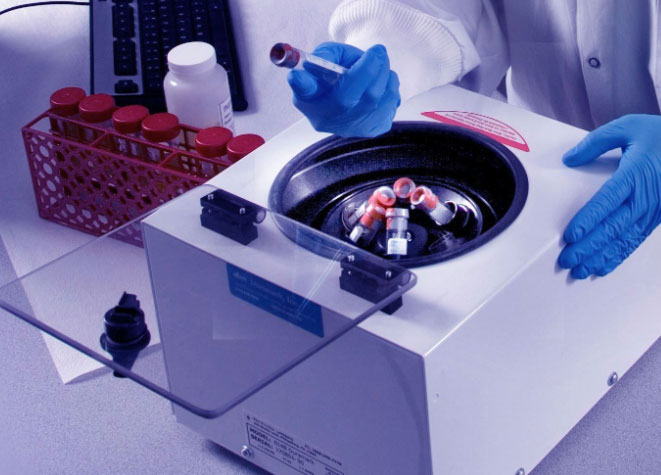Sponsored content brought to you by
Biospecimens from both healthy and diagnosed human subjects are key sources of information used throughout diagnostic and therapeutic development. Traditionally, these samples are sourced directly from clinical sites or biorepositories that collect, catalog, and store consented biological material—such as blood, tissue, cells, and DNA—along with medical information for future use.
Access to these specimens by researchers is vital to every stage of researching and developing diagnostics and therapeutics. However, biorepositories and the clinical networks they rely on for biospecimen collection have struggled to keep up with demand. The pandemic has put additional strain on supply due to bandwidth constraints at hospitals and overburdened logistics networks. Much needed research has been delayed due to slow accrual or failure to secure enough specimens, lack of matching controls, missing or incorrect disease-specific data, or inability to re-access patients for additional data or samples.
Precision for Medicine—a global leader in biospecimens, lab services, and CRO services for life sciences—is solving this problem. Leveraging a strategic sourcing approach, Precision for Medicine combines its extensive network of patients and clinicians with end-to-end logistics to enable scalable biospecimen supply that supports quality data generation.
“In addition to our readily-accessible library of 25 million preserved specimens, we have established the systems and infrastructure to reach patients directly,” said Jim Boushell, VP of Biospecimen Solutions with Precision for Medicine.
These existing capabilities proved to be critical in meeting the demand for research-ready biospecimens to advance COVID-19 response efforts. In addition to direct-to-patient outreach, Precision for Medicine utilized social media and collaborations with support groups to identify and engage with individuals and communities seeking to contribute to the cause. The company used digital platforms for obtaining consent and medical release forms remotely according to IRB-approved protocols. It also built and deployed a mobile phlebotomy fleet for performing convenient at-home collections.
Biological materials undergo a complex journey from the patient to the scientist and specimen integrity must be maintained throughout the chain of custody. To ensure proper handling and processing, Precision for Medicine hired couriers with secure, temperature controlled chambers and operated three round-the-clock shifts in its bioprocessing lab so that samples were processed within the critical timeframes needed for quality and cell viability.
This ability to be nimble and innovative in delivering fresh, well-characterized, compliant samples helped the NIH, CDC, and diagnostics companies to quickly develop COVID-19 tests for diagnosing and monitoring patients. Just as importantly, it enabled other life science companies to continue critical research in other indications with minimal to no interruption.
“With our end-to-end biospecimens solution, we were able to connect to the precise populations of patients that researchers needed,” continued Boushell. “From the outset, our holistic approach to sourcing has been designed to shift our role from vendor to research partner and to transform the process from a transaction to a true scope of work.”
Adding exponential value
A biospecimen solutions partner adds value not only through the quality of the biological samples they provide, but also through the expertise they lend to the associated research programs. To extract the most value out of biospecimens, researchers need deeply-phenotyped samples that come with accurate data on disease severity, co-morbidities, past treatment response, and other relevant clinical history. They must also identify and understand which specimen types are needed for answering their scientific questions. With its long history and experience in the biospecimens arena, Precision for Medicine helps researchers define and procure extensively-characterized, fit-for-purpose specimens.
A key risk of working with poorly characterized samples is an inadequate or inaccurate understanding of disease drivers. The late-stage failure of Gilead’s selonsertib in nonalcoholic steatohepatitis (NASH) is a prime example of how insufficient understanding of disease biology can derail a clinical program. The disappointing performance of selonsertib against placebo in Phase 3 trials can likely be traced to targeting fibrosis, a phenotype of NASH, rather than the underlying mechanisms of disease.
“Too often, scientists do not have all the relevant information affiliated with the samples they are using and push their research forward without the full story,” said Boushell. “As a biospecimens solutions partner, we take the time to understand the questions being asked and how samples will be used throughout the development process, so we can provide the right specimens for both current and downstream research.”
Delivering across applications and indications
As we have seen with COVID-19, biospecimens are central to the development of in vitro diagnostic (IVD) tests that can be used not just in the lab, but in the home. For example, biospecimens have enabled the development of at-home stool sample collection kits, such as Cologuard®, which offer a convenient, less invasive method of colorectal cancer screening.
“Biospecimens allow any type of diagnosis to be discoverable, predictable, and potentially treatable. The goal is better diagnostics, better treatment, and, ultimately, better living,” explained Boushell. “We provide the specimens or the subcomponents and the detailed medical history to expedite research across applications and indications. For example, we are facilitating a diagnostic program that seeks to determine if expectant mothers are susceptible to preeclampsia or are experiencing preterm labor.”
Precision for Medicine also offers services beyond biospecimens, such as clinical trial design and execution, study kits, specialized laboratory services, and sample storage. The company also offers custom assays to support biomarker development and validation and state-of-the-art biobanking facilities.
“Biospecimen providers are an important part of the food chain in the life cycle of diagnostic and therapeutic development. The research should never have to stop, even during a pandemic. It just takes creativity and companies like ours to keep it moving forward,” concluded Boushell.


